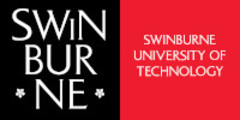Civil engineers are concerned with the design, construction and improvement of our built environment. This degree provides you with the technical expertise and management skills needed to plan, design, construct and maintain facilities such as buildings, bridges, dams, water supply systems, waste treatment systems, road and rail networks, and air and sea ports. You will gain comprehensive civil engineering theory as well as hands-on practical work and real-life projects to get you job-ready or use the course as a pathway into research or further learning.
Graduates are eligible for registration under Civil branch with Board of Engineers Malaysia (BEM).
Course educational objectives
The following course educational objectives define the achievements of Swinburne graduates in their professional engineering career a few years after graduation.
-
CEO1 Professionalism: Graduates establish themselves as practicing professionals in Civil Engineering and related fields.
-
CEO2 Continuous Development: Graduates engage in continuous pursuit of knowledge and development of competencies.
-
CEO3 Social Involvement: Graduates contribute to sustainable development and well-being of society.
Course learning outcomes
Students who successfully complete this course will be able to:
- apply coherent and advanced knowledge of the chosen major in engineering in diverse contexts and applications using critical thinking and judgment
- apply knowledge of research principles and methods to plan and execute a piece of research with some independence, as preparation for research higher degrees
- apply problem solving, design and decision-making methodologies to identify and provide innovative solutions to complex problems with intellectual independence
- apply abstraction, mathematics and engineering fundamentals to the analysis, design and operation of a model, using appropriate engineering methods and tools
- communicate proficiently in professional practice to a variety of audiences, function as an effective member or leader of a diverse team, and use the basic tools and practices of project management within project work
- demonstrate professionalism, integrity, ethical conduct, professional accountability and an awareness of professional engineering practice in a global and sustainable context
- reflect on and take responsibility for their own learning and self-management processes, and manage their own time and processes effectively by regularly reviewing of personal performance as a means of managing continuing professional development and lifelong learning.
At the completion of the Bachelor of Engineering (Civil Engineering), graduates should be able to demonstrate the attainment of the following Civil Swinburne Engineering Competencies, required for external professional recognition:
-
K1 Basic Science: Proficiently applies concepts, theories and techniques of the relevant natural and physical sciences.
-
K2 Maths and IT as Tools: Proficiently uses relevant mathematics and computer and information science concepts as tools in complex engineering activities.
-
K3 Discipline Specific: Proficiently applies advanced technical knowledge of Civil Engineering within that context
-
K4 Emerging Disciplinary Trends: Proficiently applies research principles and methods on current or emerging complex problems of Civil Engineering.
-
K5 Practice Context: Discerns and appreciates the societal, environmental and other contextual factors affecting professional engineering practice.
-
K6 Professional Practice: Appreciates the principles of professional engineering practice in a sustainable context.
-
S1 Engineering Methods: Applies engineering methods in practical applications and complex engineering problems.
-
S2 Problem Solving: Systematically uses current or emerging knowledge and research methods to undertake independent research in solving complex engineering problems and as preparation for research higher degrees.
-
S3 Design: Systematically uses engineering methods in designing solutions to complex engineering problems.
-
S4 Project Management: Systematically uses engineering methods in conducting and managing project work including finance.
-
A1 Ethics: Values the need for, and demonstrates, ethical conduct and professional accountability.
-
A2 Communication: Demonstrates effective communication to professional and wider audiences including in complex engineering activities.
-
A3 Entrepreneurial: Appreciates entrepreneurial approaches to engineering practice.
-
A4 Information Management: Demonstrates seeking, using, assessing and managing information.
-
A5 Professional Self: Demonstrates professionalism and life-long learning.
-
A6 Management of Self: Demonstrates self-management processes.
-
A7 Teamwork: Demonstrates effective team membership and team leadership.
Career opportunities
There is high demand for civil engineers in Malaysia and overseas. Civil engineers work as planners, designers, construction managers, administrators, investigation and research engineers and consultants. They have the opportunity to work for public authorities, municipalities, consulting firms and in the construction industries, or are self-employed.
Civil engineering is also an excellent preparation for many general managerial positions in business and industry, not directly related to civil engineering.
Professional recognition
Graduates are eligible to register as Graduate Engineers with Board of Engineers Malaysia (BEM) and to apply for graduate membership with The Institution of Engineers Malaysia (IEM) and Engineers Australia (EA).
